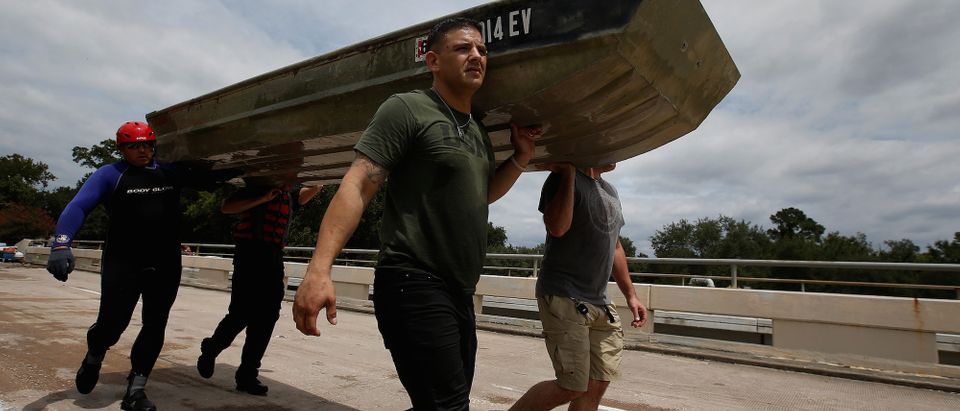Even as a unit within the Department of Health and Human Services (HHS) is removing employees who are on blood thinner medication, it is also asking for new recruits.
In February, The Daily Caller featured the story of Lee Gary, 77, who worked on standby for the National Disaster Medical System (NDMS), a disaster relief unit within HHS, Gary had been placed on indefinite leave because he was on blood thinners.
NDMS units respond after governors request help cleaning up after natural disasters or big events.
Though Gary’s personal doctor found his medication would not affect his service with NDMS, the organization determined he could no longer serve, placing him on indefinite leave.
“I see no contraindication to him continuing his work with the NDMS from arrhythmia and anti-coagulation perspective,” his doctor stated in an assessment dated Sept. 13, 2017.
In March 2018, the acting head of NDMS, Ron Miller, sent Gary a letter stating that NDMS intended to permanently remove him from service: “This is advance notice that I propose your removal from Federal service and from your position of Logistics Coordinator.”
Miller continued later in the letter: “As your condition of use of anti-coagulants including new ‘direct oral anti-coagulants’ disqualifies you from your position and deployment at NDMS.”
Gary said on March 29 he participated in a call to appeal with a NDMS case worker, but that the call was perfunctory.
Gary said the case worker said that while the NDMS case worker recognized some great work for the organization that the situation with rules and regulations meant he was not deployable.
“Is that it?” Gary said he responded, “well then this conversation is over.”
Gary owns a business consulting on economic development, often in the third world.
As recently as 2015, his work took him to Sierra Leone where he was recognized for setting up health clinics in the middle of an Ebola outbreak.
“I had to live in personal protective equipment (PPE) gear,” Gary said, “It’s an extreme environment. You spend all your time in protective conditions, prophylactic conditions.”
Gary said the work in Sierra Leone was far more dangerous than anything at NDMS.
But even as NDMS insists on removing Gary, a regional director is asking for new recruits in the same area he serves.
“OK-1 and AK-1 are needing help with backfilling their rosters for March,” wrote a regional manager of the region where Gary served in an email from Feb. 8, 2018. “They need medical and non-medical. If anyone can help please let us know.”
Joni Geels, a public affairs officer at HHS, told The Daily Caller that while she couldn’t comment on personnel matters, she noted: “The important thing to know is that the NDMS personnel health standards are in place to protect our NDMS providers and provide the best possible support to the American people depending on us after a disaster.”
But Gary maintains that part of the problem is that the determination that blood thinner use disqualified him was done in a non-transparent manner and with no legitimate medical basis.
Initially, Miller sent an innocuous sounding memo in March 2017 stating in part: “This policy delineates the National Disaster Medical System program for screening NDMS intermittent personnel for health-related conditions and associated factors that may restrict their deployment in support of NDMS operations.”
An email to Miller’s work email was left unreturned.
Gary said he spoke with a doctor consulting for NDMS in May and this doctor — both verbally and in emails — told Gary of their personal distaste for blood thinners.
Only after that did it become NDMS policy that those taking blood thinners were no longer fit.
Gary has noted that this policy came about with no hearings, no established medical peer-review, and no broader explanation for why taking blood thinners would automatically disqualify someone from service.


